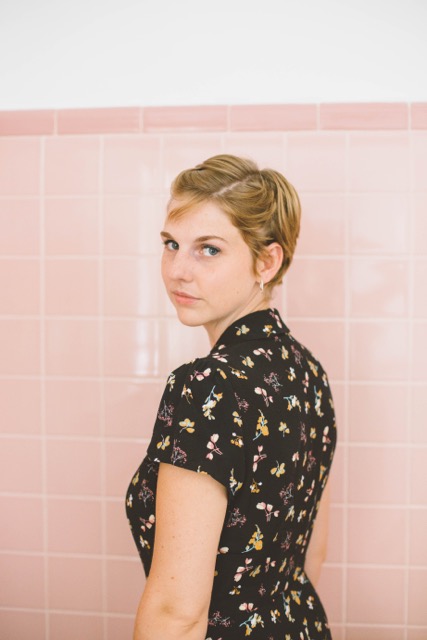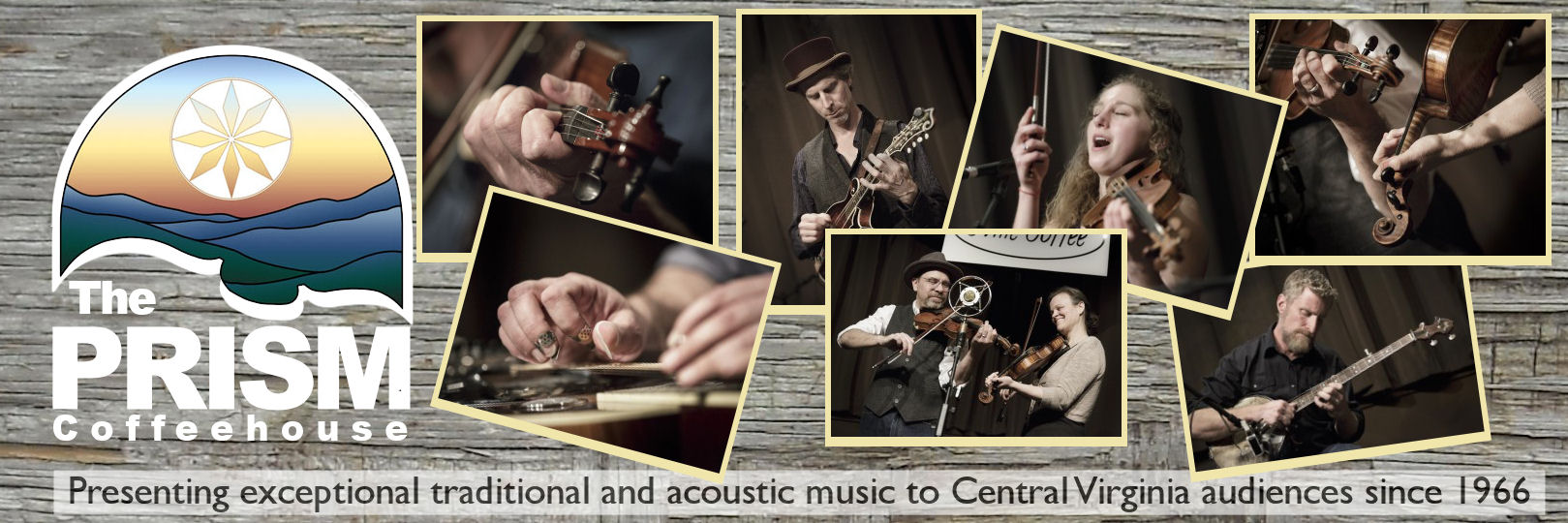Dori Freeman
The Prism Coffeehouse is delighted to present
Dori Freeman
in concert

Saturday, January 27th 2018 at 7pm
Doors open at 6:30pm
at Cville Coffee, 1301 Harris Street, Charlottesville, VA 22903
“Honest to goodness Galax songstress with over 1 million listens on Spotify”
Tickets $12 advance/$14 door
Advance tickets available at http://prismcoffeehouse.org/
Dori Freeman grew up in a family of bluegrass musicians, raised on a diet of Doc Watson and the Louvin Brothers. But by driving age, she’d cruise around her hometown of Galax, Virginia (pop: 7,042), windows down, breeze riffling her cropped strawberry-blonde hair, and harmonize with the pop melodies of singer-songwriter Teddy Thompson playing on her CD player. “I always thought that our voices sounded nice together,” Freeman says in a rough-edged, Appalachian twang. The feeling stuck with her, and at one point, Freeman did something odd for a 22-year-old single mom working at the family’s frame shop: she recorded a video of herself playing Thompson’s “Everybody Move It” and sent it to him via Facebook, with a note saying how much she liked to sing with him.
Three days later, he wrote back.
Two years after that, The New York Times named Freeman’s self-titled debut—an honest and achingly beautiful collection of folk and country songs produced by Thompson and recorded in three days—one of the best albums of 2016. “The purity of Dori Freeman’s voice and the directness of her songwriting reflect not only her Appalachian hometown,” wrote the Times’ Jon Pareles in his initial review, “but also a determined classicism, a rejection of the ways modern country punches itself up for radio and arenas.” So far, Freeman‘s success owes as little to modern country as it does the standard career-building tools of young artists. No brand partnerships, an Instagram account that’s much more personal than promotional, though, yes, she’s still on Facebook. An unnervingly grounded 26, she states her goal as “try to make good music and hope people listen to it” with a sure finality. “I just hope that I can sustain a career doing this for the rest of my life.”
She definitely has good role models. Her dad and grandfather are respected bluegrass musicians, and growing up she traveled with them to fiddle conventions and folk festivals. “I spent a lot of nights at campsites as a kid, watching them and their friends take turns picking songs and jamming for a few hours,” Freeman recalls. Finally at 15 she picked up the guitar—specifically a small body guitar of her dad’s that had “this ridiculous Hawaiian print and wasn’t really meant to be played”—because she loved singing in the school chorus and wanted to be able to back herself up. Her first gig was with her dad, performing Doc and Rosa Lee Watson’s “Your Long Journey.”
Freeman started writing her own songs—taking inspiration from Rufus Wainwright and Dolly Parton—after dropping out of Virginia Tech University and moving back home. By 22 she had a daugher, Osa, as well as plenty of heartbreak to serve as lyric fodder. “I pretty much always have a little baseline of melancholy going on,” she admits. Osa, surprisingly, ended up being the push Freeman needed to seriously pursue music. “Some people find it odd that you would not have much of a career and then have a baby and then the baby be the catalyst for wanting to have a career, but that’s what happened,” she says. “She changed my life and made me realize that if I wanted to do music, I had to do it full force and be confident about it. I had to do it for her, but also for me.”
While Freeman’s debut hewed to love-gone-wrong songs, her new album, the more measured and maturely crafted Letters Never Read—again produced by Thompson and featuring guest appearances by his dad Richard Thompson, as well as Aiofe O’Donovan and Kacy & Clayton —has a distinctly rosier outlook. “I always want to put out something that’s a genuine representation of what I was going through at that point in my life,” says Freeman, noting that getting married last year to fellow musician Nick Falk (who plays drums and banjo on the album) made writing love songs much easier. She laughs. “I’m happier now in general.”
Though her melancholy baseline’s holding strong. “Cold Waves” offers strikingly palpable telegrams from within depression (“Cold Waves, blue haze, that’s what it feels like, on the dark days,” she lilts over guitar and vibraphone) and her favorite song, “Lovers on the Run” is about being left behind: “I’ve spent many an hour writing letters never read/I’ve stared away the ceilings of a thousand lonesome beds.” The album title, Letters Never Read, comes from the idea of “writing songs about people in your past and maybe them never knowing that it’s about them,” she explains, “kind of like a letter never being read.”
Honesty—in both writing and performance—seems almost reflexive in Freeman‘s case. “I don’t try to overdo any songs or put on big theatrics. I think simple is better.” It’s a reflection of her Appalachian roots, which she’s immensely proud of. “I think people have an idea of what this area in the country is like, and what that music sounds like, and it’s not necessarily a really nice picture that’s been painted. I want to break that stereotype down,” she says. “I’m proud of where I’m from. And I want to bring that kind of music to a new audience in a different way.”
